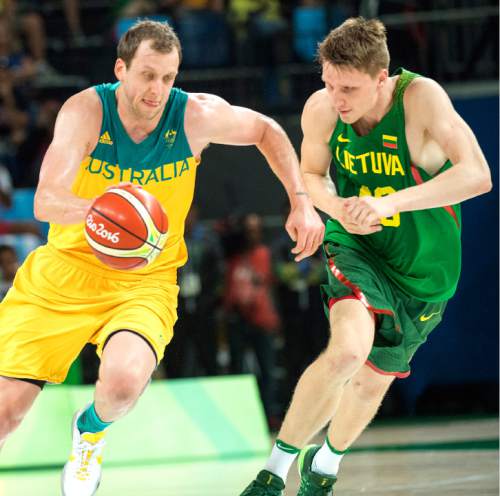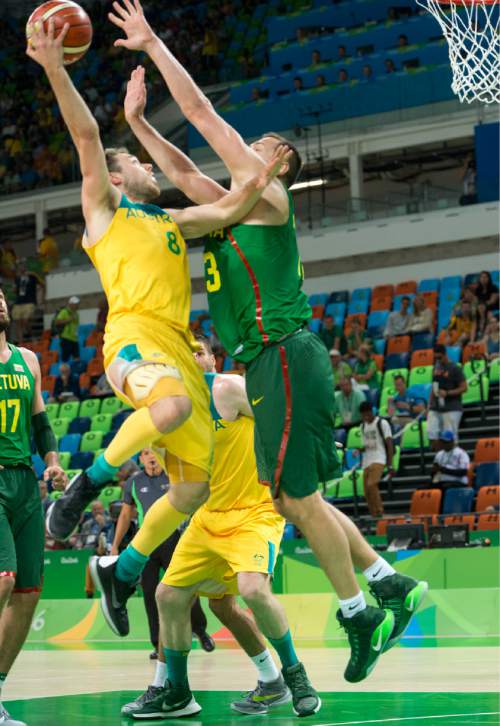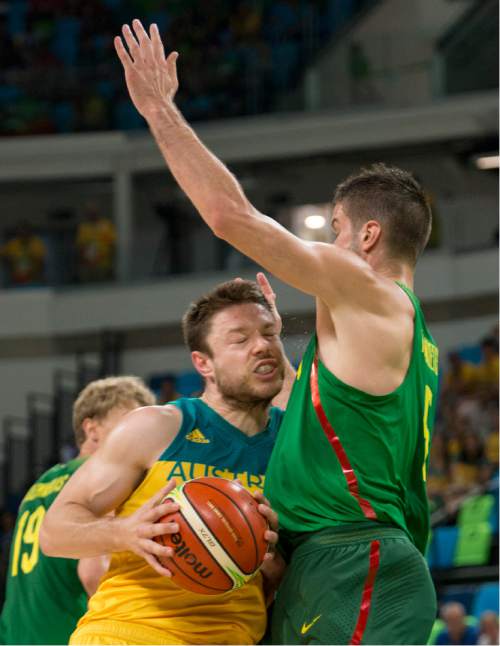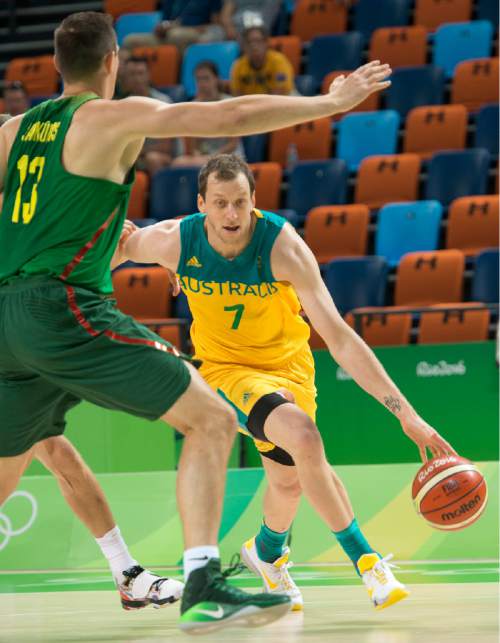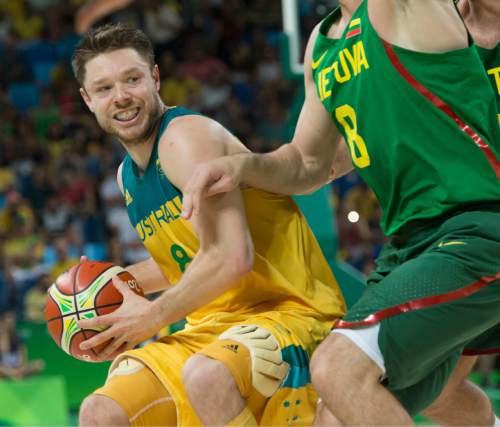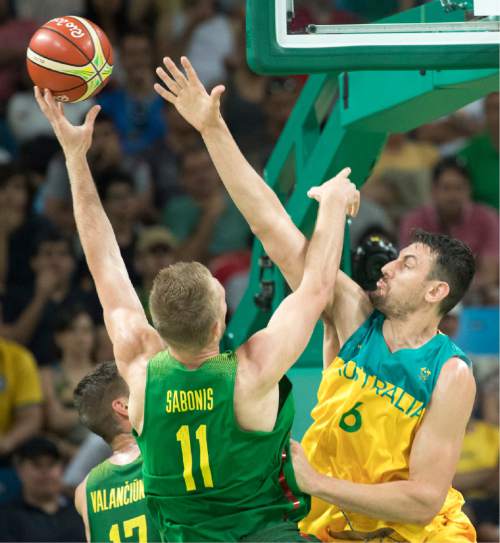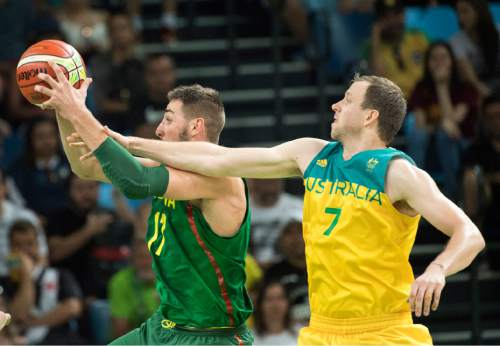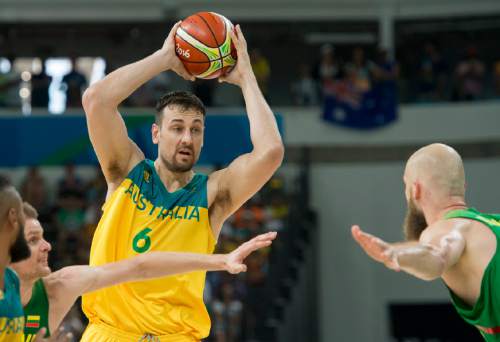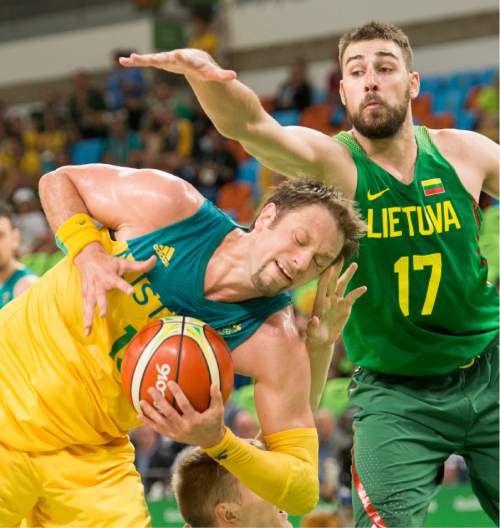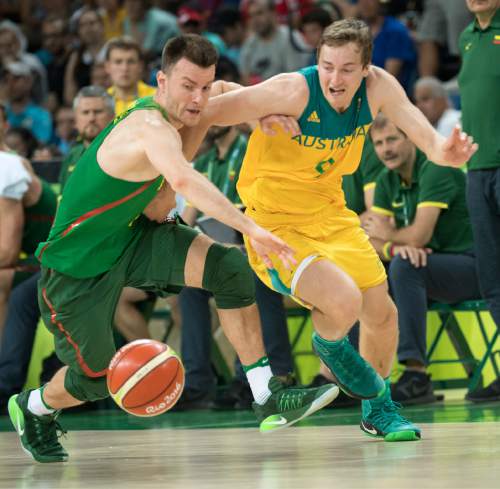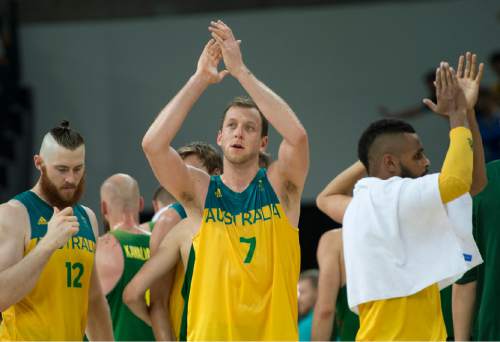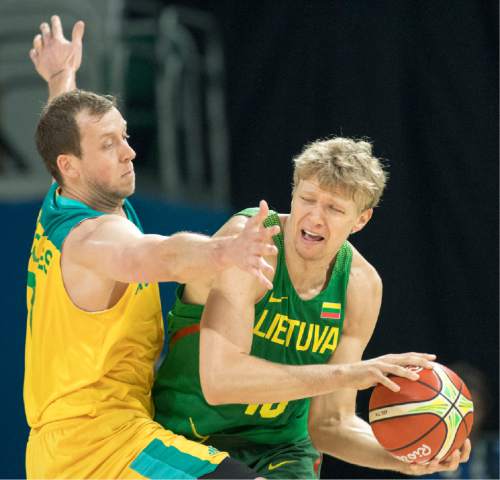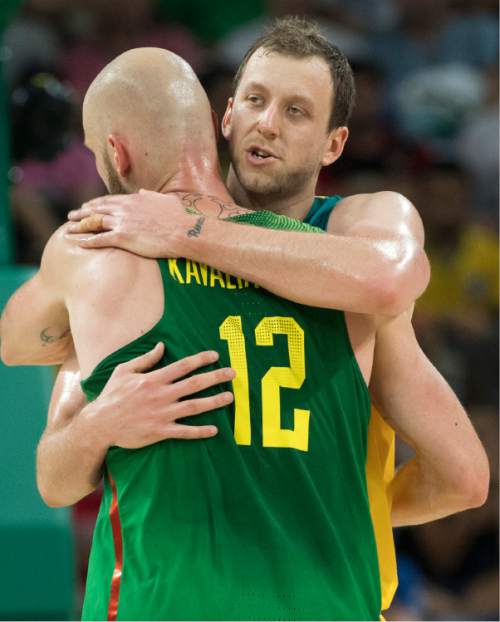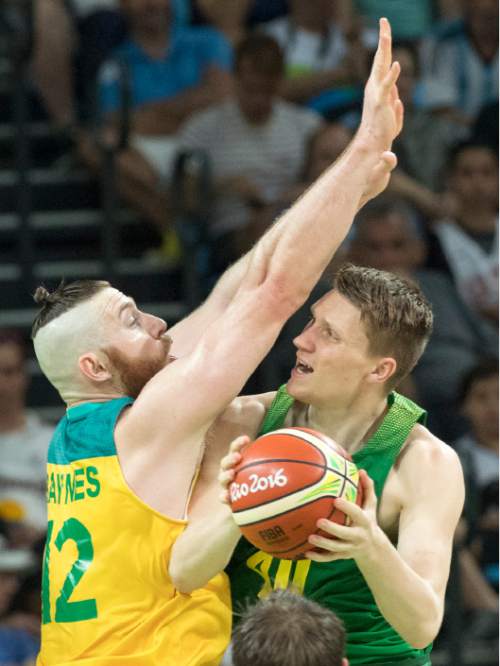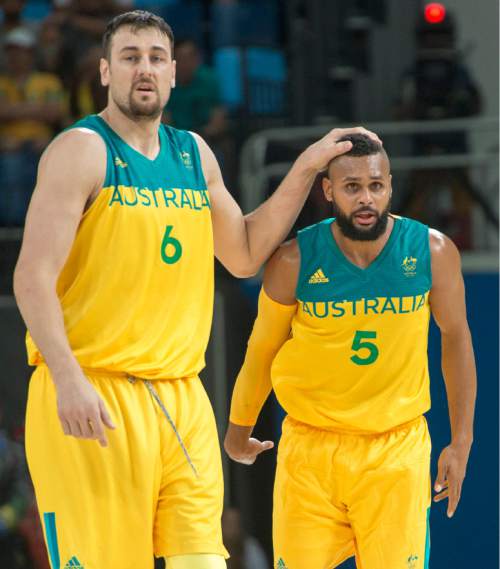This is an archived article that was published on sltrib.com in 2016, and information in the article may be outdated. It is provided only for personal research purposes and may not be reprinted.
Rio de Janeiro
The Kookaburras, Hockeyroos, Matildas, Opals, Stingers and Sharks have disappointed the homeland's fans with their performances in Rio.
The Boomers are another story. Australia's men's basketball team is making a good impression in every game, increasing hopes for the team's first Olympic medal and boosting a national sports program that needs this kind of showing to salvage more from the 2016 Games.
The players' response to that kind of pressure? They'll pass. That's a compliment. Their game is built around sharing the ball and setting up teammates for good shots that they're converting. In Wednesday's case, it added up to a 90-64 quarterfinal win over Lithuania, continuing the Boomers' trend of the tournament.
They're lifting the country, which produced a gold medal in the new sport of women's rugby sevens but otherwise has fallen short of expectations in its team medal pursuits, as the Sydney Morning Herald observed. In women's basketball (Opals), soccer (Matildas), water polo (Stingers) and field hockey (Hockeyroos) and men's water polo (Sharks) and field hockey (Kookaburras), the Aussies have failed.
The Boomers just keep winning, other than losing to the USA in group play after leading briefly in the fourth quarter. And thank goodness for their nickname, because repeatedly using only a country's name in the Olympics is tiresome.
To their credit, the Boomers are doing all of this collectively, with an unselfish style that basketball fans in Utah should recognize and endorse.
Former Ute center Andrew Bogut is an adept passer in the post and Jazz guard Joe Ingles keeps the ball moving. They combined for 11 assists Wednesday, when Patty Mills scored 24 points to lead the Boomers.
As Ingles walked through the interview area, I said something about being amazed by the Aussies' passing. With his usual, good-natured smirk, Ingles replied, "Still?"
Yeah, maybe everyone should be getting used to this by now. The Boomers' balance and teamwork make them tough to defend, as opponents are discovering in Rio.
"We've got an unbelievable group of guys who are willing passers," Ingles said. "We don't have any selfish guys out there. … It's pretty rare to get that out of 12 guys."
And the Aussies keep racking up assists, although Olympic statistics should come with an asterisk or at least an explanation. FIBA rules say a player earns an assist when a pass leads to a teammate's successful free throw — not just a basket, as in the NBA or other American levels of the game. So the Boomers' being credited with 30 assists among 33 field goals Wednesday is mildly deceiving, as was part of the near-triple double that the Jazz's Boris Diaw compiled for France against Serbia (11 points, nine rebounds, nine assists) in preliminary play.
In the USA's game vs. Serbia, Paul George spoke of too many "one-on-five shots," even though the stat sheet showed 28 field goals and 29 assists. By FIBA rules, with all of those passes leading to Karl Malone free throws, John Stockton may have compiled 20,000 assists.
In any case, these Aussies are passing experts. They're closely bonded and they've played together for a long time. That's an advantage over a USA team that is still trying to develop cohesiveness — although George's comment aside, I wouldn't describe the Americans as playing selfishly.
They're just not as efficient as other teams in this tournament, notably the Boomers, whose country needs them to keep delivering.
These guys genuinely could receive gold medals Sunday. And then they'll pass them around.
Twitter: @tribkurt


